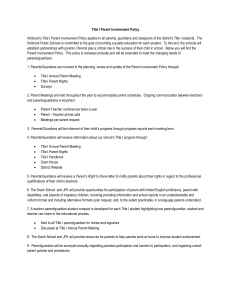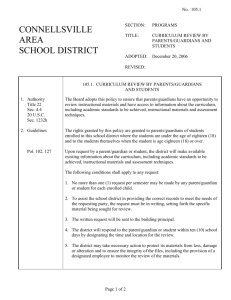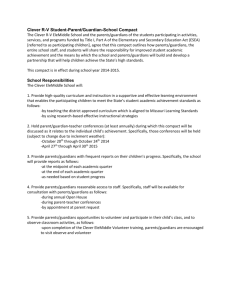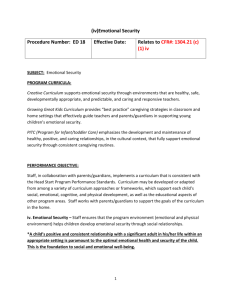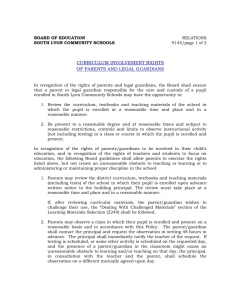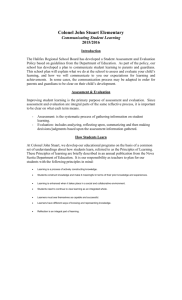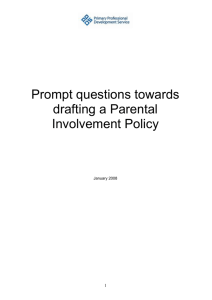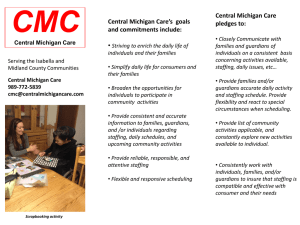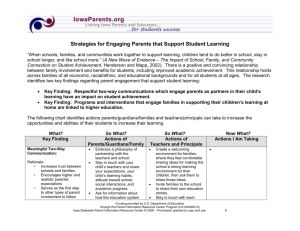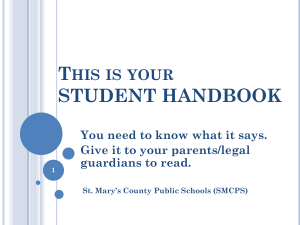Parental/Guardian Visits to school
advertisement
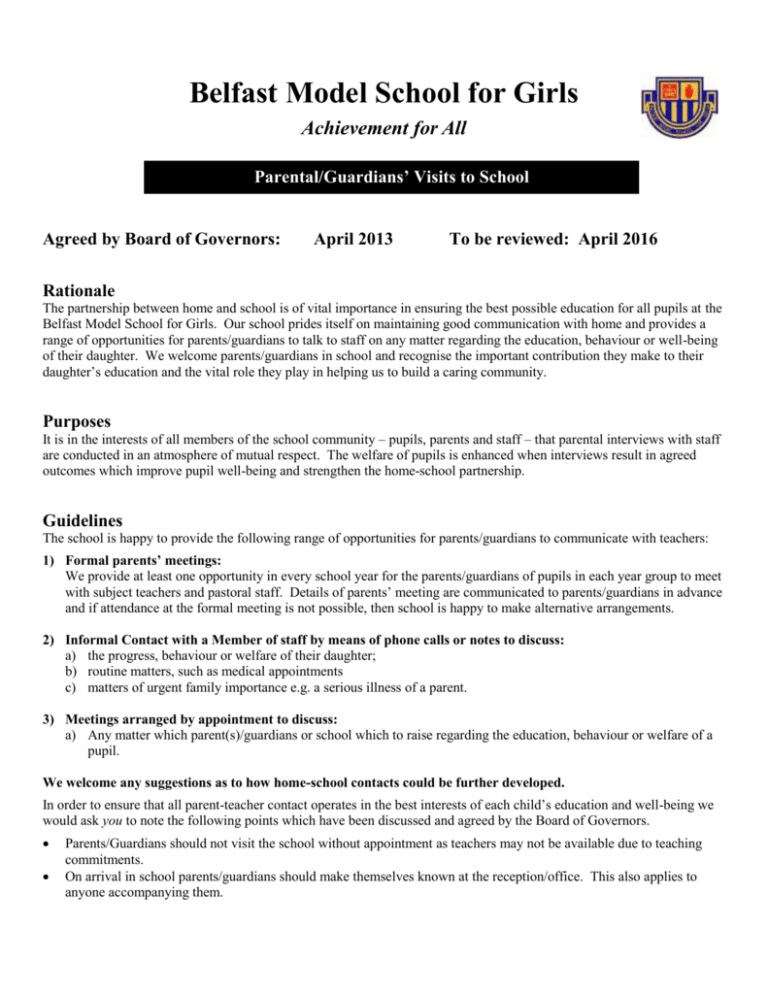
Belfast Model School for Girls Achievement for All Parental/Guardians’ Visits to School Agreed by Board of Governors: April 2013 To be reviewed: April 2016 Rationale The partnership between home and school is of vital importance in ensuring the best possible education for all pupils at the Belfast Model School for Girls. Our school prides itself on maintaining good communication with home and provides a range of opportunities for parents/guardians to talk to staff on any matter regarding the education, behaviour or well-being of their daughter. We welcome parents/guardians in school and recognise the important contribution they make to their daughter’s education and the vital role they play in helping us to build a caring community. Purposes It is in the interests of all members of the school community – pupils, parents and staff – that parental interviews with staff are conducted in an atmosphere of mutual respect. The welfare of pupils is enhanced when interviews result in agreed outcomes which improve pupil well-being and strengthen the home-school partnership. Guidelines The school is happy to provide the following range of opportunities for parents/guardians to communicate with teachers: 1) Formal parents’ meetings: We provide at least one opportunity in every school year for the parents/guardians of pupils in each year group to meet with subject teachers and pastoral staff. Details of parents’ meeting are communicated to parents/guardians in advance and if attendance at the formal meeting is not possible, then school is happy to make alternative arrangements. 2) Informal Contact with a Member of staff by means of phone calls or notes to discuss: a) the progress, behaviour or welfare of their daughter; b) routine matters, such as medical appointments c) matters of urgent family importance e.g. a serious illness of a parent. 3) Meetings arranged by appointment to discuss: a) Any matter which parent(s)/guardians or school which to raise regarding the education, behaviour or welfare of a pupil. We welcome any suggestions as to how home-school contacts could be further developed. In order to ensure that all parent-teacher contact operates in the best interests of each child’s education and well-being we would ask you to note the following points which have been discussed and agreed by the Board of Governors. Parents/Guardians should not visit the school without appointment as teachers may not be available due to teaching commitments. On arrival in school parents/guardians should make themselves known at the reception/office. This also applies to anyone accompanying them. Anyone other than a parent/guardian will only be permitted to take part in discussion by prior agreement with the Principal or one of the Vice Principals. Parents/Guardians or others must not go directly to classrooms under any circumstances. Parents/Guardians must not talk to any teacher or pupil without prior approval. All discussions should be carried out in an atmosphere of mutual respect. Courteous, tolerant and non aggressive behaviour is expected from everyone involved. In the very rare event of any of these points not being followed, we would ask you to note the policy of the Board of Governors: 1) The board of Governors reserves the right to withdraw a parent’s /guardian’s right to enter the school. Depending on circumstances, a verbal or written warning may or may not be issued in advance of such action 2) Any proposal to withdraw a parent’s guardian’s right will be communicated in writing to a parent/guardian. This will include an opportunity to respond in writing within one working week to the proposed action. After that time any decision to withdraw the right to enter school premises will be communicated in writing to the parent/guardian. 3) Parents/Guardians will have a right of appeal in person or in writing to an Appeals Committee of the Board of Governors whose decision is final. 4) Any such decision is open to review by the Board of Governors at a later date. These policy Guidelines are translated into action through other policies and procedures, for example: Behaviour Management Policy Pastoral Care Policy Child Protection Policy Staff Code of Conduct
